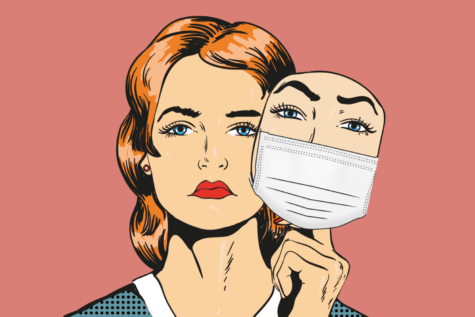OPINION | Universal mental health policies need to be adopted
October 12, 2022

We have all had really bad days. Sometimes, those days begin to pile up on each other, to the point where we feel so overwhelmed that we just need a break. Unfortunately, giving oneself a break is easier said than done.. For many students, the reality is that there may be a paper due by Sunday, perhaps there are two exams back-to-back next week or a group project due tonight.
Especially in the aftermath of a global pandemic, academic life has only become more difficult. The world is a different place than it was before COVID-19. The pandemic has been proven to increase the rates and severity of anxiety and depression. As such, Tulane University professors should implement updated mental health policies for their classes.
The most difficult aspect of mental health issues is that only the person experiencing it can truly understand what they are going through, what they need and what will ultimately be best for them. Outsiders can empathize with them, but will not know what they need to feel better. While some professors do understand this and implement mental health policies in their classes, the university has not adopted any universal procedures.. The university needs to establish a clear-cut procedure for how professors should handle mental health.
First, professors of similar areas should have some coordination for scheduling exams. For example, many pre-medical students take more than one STEM class per semester. When exam time comes, these exams typically pile all into one week, and life becomes significantly more difficult.
Professors of STEM courses should communicate with each other and attempt to space out exams. A pre-medical student should not have to take calculus 2, organic chemistry 2 and cellular neuroscience exams in one week. By scheduling all of these tests for the same week, exams become more of a reflection of mental fortitude rather than knowledge of the subject.
Another way that the university could bolster students’ mental health is to adopt day-offs in between major holiday breaks. During the pandemic, Tulane adjusted its academic calendar to incorporate these days off, calling them “Lagniappe Days.” In this time period, other holiday breaks were adjusted to balance Lagniappe days; however,the university should still include some of these off-days into its calendar. A Monday or Friday off is something students can look forward to, especially when longer breaks are so far away, particularly during the spring semester. When the weather cools down even more, these days could be something to cherish.
Instructors can also switch the location of classes — for instance, hosting class in an outside area on a sunny day. This may not be realistic for all types of classes but, when possible, having class outside on a beautiful day can feel like a breath of fresh air compared with often dull, dimly lit lecture halls.
If a change of scenery is not possible, teachers could incorporate Zoom learning into their curriculum. On days when it’s hard to even get out of bed, Zoom classes give students the opportunity to still learn. While students should not be given unlimited opportunities to take advantage of this, having this option provides peace of mind.
College is known to be a difficult period in our lives, and one that is intended to prepare students for working life, but that doesn’t mean we must suffer to the point where life seems unbearable. If students are being pushed to their breaking point, this is a reflection of the poor quality of the system, not their own idleness. The university should promote the mental well-being of its students.








Leave a Comment